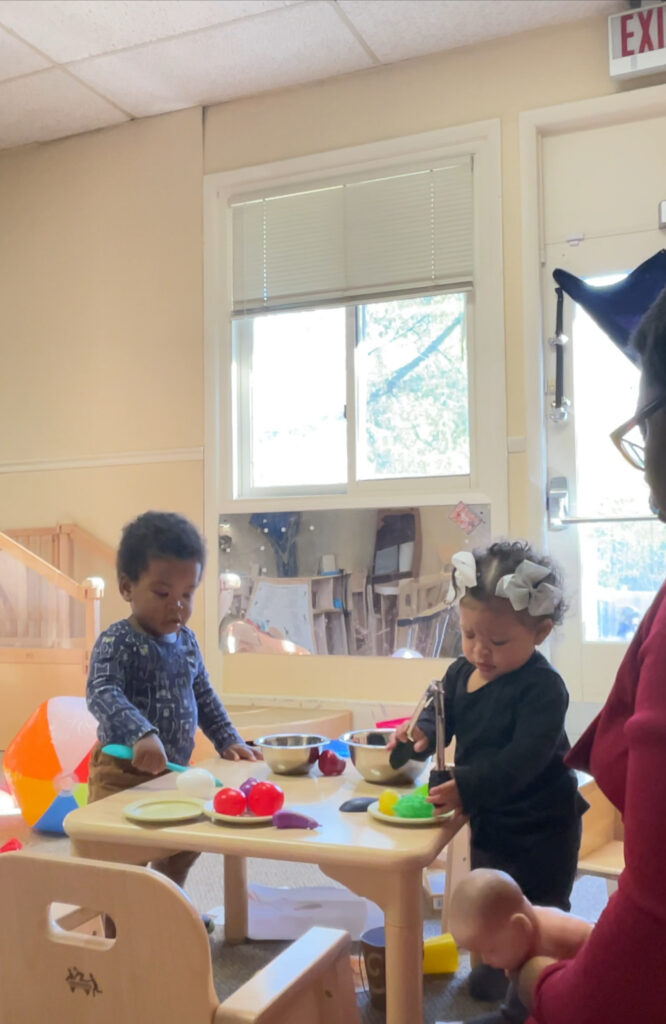
The importance of play (This I believe Essay)
Ever since I was a young girl, I always wanted to work with young children, but I was never sure in which career path to take. All I knew was that I wanted to work with young children. When I started attending college, I chose nursing as my major, but it never felt right, so I started babysitting in my neighborhood as I was babysitting and observing children’s play, I noticed that each time the children play, they will discover something new and get really excited about it. This intrigued me and I wanted to learn more about young children and how play influence learning in early childhood education, so I changed my major to child development and early childhood education.
Through play, children can build conceptions, acquire skills, and develop a firm foundation for success in school and later in life. Some people may disagree with this view, but children’s engagement in play is not a waste of time but an indicator of who they are and who they will be. For example, throughout my interaction with children, I have learned that children will want to play with the things they love most, which can be connected to their talents. I have also learned that it is through play that children explore, experiment, and make sense of the world around them. I think it important for every caregiver to be observant in order to understand and interpret children’s plays into meanings since that could help the caregivers assist the children in building strong foundations for their success in life.
Play is important because it plays an important role in shaping children’s cognitive, social, emotional and physical well-being. Play provides a natural setting for children to engage in problem-solving, decision-making, and creative thinking. Whether it’s building with blocks, solving puzzles, or engaging in imaginative play, these activities stimulate the development of cognitive skills.Through play, children learn to plan, organize, and implement tasks, laying the foundation for future academic success.
Moreover, play contributes significantly to emotional development. It offers children a safe space to express and regulate their emotions. Whether they are role-playing, engaging in make-believe scenarios, or interacting with peers, children learn to understand and manage their feelings. Play also fosters resilience, teaching children to cope with challenges and setbacks in a supportive environment. Social skills are another aspect of a child’s development that is nurtured through play. Interacting with peers in different play settings helps children learn to communicate, negotiate, and collaborate. It lays the groundwork for building friendships, understanding social cues, and developing empathy. Team games and cooperative play enhance a child’s ability to work peacefully within a group, an important skill that extend beyond childhood into various aspects of adult life. Lastly play promotes the development of gross and fine motor skills. Running, jumping, climbing, and playing with manipulative toys contribute to improving coordination, balance, and strength.
I believe that play in early childhood education fosters a love for exploration and discovery. It encourages children to ask questions, seek answers, and think creatively. The freedom to engage in open-ended play allows for self-directed learning, where children follow their interests and develop a sense of independence.


Tricia McKay
December 4, 2023 — 12:02 pm
Hi Blondine,
Thanks for sharing your essay! You provide so many good points about why play is important for children’s growth and development. As early childhood educators, we understand the importance of play, but others outside of early childhood don’t always understand the value of play. I hope that in your career you continue to promote play and also find time to play yourself!
Tricia
jonathon mcvey
December 6, 2023 — 1:52 pm
Such an important concept, thank you for writing this essay. One of the greatest challenges in our culture is the idealism of hyper competitive and hyper productive lifestyle. These are not healthy without a balance of play. I have read recent studies citing that it is good to let children play until they are exhausted on a regular basis. I am excited that you have found your passion and are plugged into it. May we all learn from and be like children and included play in our daily lives.